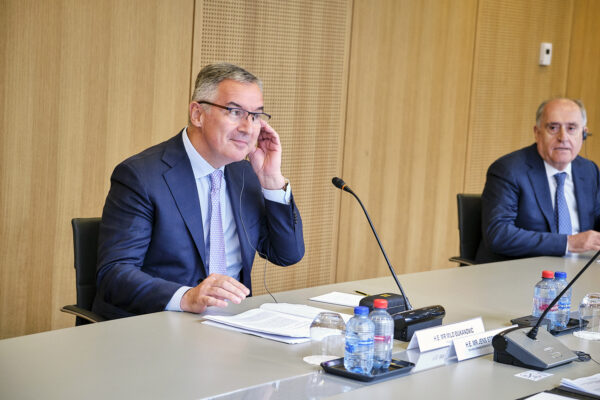
The Democratic Party of Socialists (DPS) has lost power in Montenegro after thirty years to an alliance of left- and right-wing parties, finally giving the Balkan country a chance at a free and more equal future.
Pro-Serbian opposition leader Zdravko Krivokapić announced, “The regime has fallen.”
Although DPS leader Milo Đukanović remains president until 2023, his party will be in opposition for the first time since the introduction of multiparty democracy in 1990.
It fell to 35 percent support in the election on Sunday, giving it thirty out of 81 seats in parliament. Krivokapić’s For the Future of Montenegro, Peace Is Our Nation and United Reform Action won a combined 51 percent and 41 seats.
Electoral fraud
It’s a shocking outcome in a country where the DPS seemed immovable.
Election after election, the party employed its tried-and-tested methods of blackmail, fraud, intimidation and vote-buying to stay on top.
Even on Sunday, there were some 50,000 “phantom voters” in a country of just over 600,000. Half of voters were registered without an address. There are reports that citizens of other Balkan states were given fraudulent voting cards to support the ruling party.
Corruption
Đukanović’s rule has been exceptionally corrupt. While presenting himself as a pro-Western and progressive prime minister and later president to the rest of the world, at home he built what the Organized Crime and Corruption Reporting Project (OCCRP) described as “one of the most dedicated kleptocracies and organized crime havens in the world.”
Low points include conspiring with the Italian mafia to smuggle cigarettes, providing safe haven to organized crime figures, smearing activists and journalists who pointed out corruption, and misusing state funds.
When the OCCRP mockingly declared Đukanović its “person of the year” in 2015, editor Drew Sullivan commented that nobody outside Russian president Vladimir Putin “has run a state that relies so heavily on corruption, organized crime and dirty politics. It is truly and thoroughly rotten to the core.”
Abuse of civil liberties
Đukanović has shown little respect for civil liberties. In the 2016 election, he banned the use of WhatsApp and Viber to prevent the spread of what his government described as “unwanted communication.”
Đukanović finally went too far this year, when he passed a law that made it possible for the state to seize Serbian Orthodox Churches properties. The move was condemned around the world, including by Pope Francis, Ecumenical Patriarch Bartholomew I and Russian Orthodox Patriarch Kirill. International observers agreed the law contravened the Church’s fundamental right to property, which is protected under the European Convention on Human Rights.
The motive behind the law was clear enough: Đukanović wanted to weaken and dismantle the only institution in Montenegro which could still threaten his rule.
It looks like he bit off more than he could chew.
